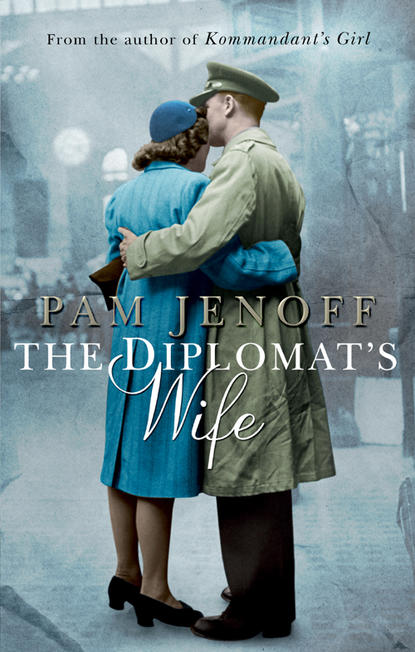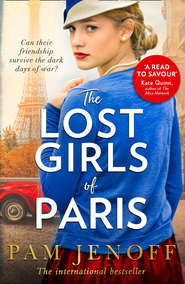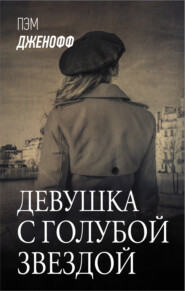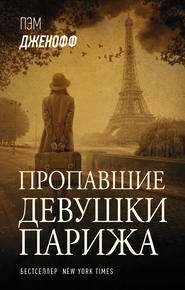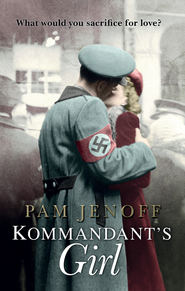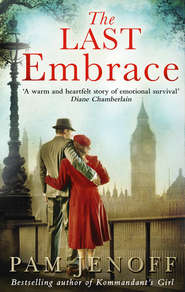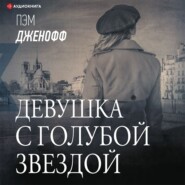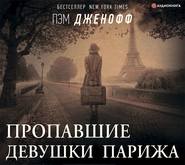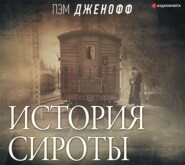По всем вопросам обращайтесь на: info@litportal.ru
(©) 2003-2024.
✖
The Diplomat's Wife
Настройки чтения
Размер шрифта
Высота строк
Поля
“We have a small transport of refugees coming in tonight from Hungary and the woman who usually helps with admissions is unwell. Want to do it?”
“Sure,” I reply eagerly. I had noticed other residents working around the camp, in the kitchen and the gardens. Several times I pressed Dava to let me help. But she explained that residents of the medical ward were not allowed to have jobs, that I would have to wait until I moved over to the main camp. They must be really desperate for assistance to break the rules now.
“Great. They should be here any minute. Just go around to the table on the front lawn and Dr. Verrier will explain what to do.”
“No problem.” I look down at Rose. “Sleep well.”
As Dava wheels Rose toward the door, I start around the side of the palace. Several army trucks have rumbled through the gate from the main road. They sit now on the grass on either side of the long dirt driveway. Soldiers climb from the trucks, open the back doors. One by one, refugees appear, still clad in their tattered, striped prison clothes. Many lean on the soldiers, unable to stand or walk unassisted. All are emaciated, skeleton thin. Did I look like that just a few months ago?
“Excuse me,” a man calls in German. I force myself to turn from the refugees. A man with dark hair and spectacles wearing a white coat stands by a folding table a few meters away. Though he is not one of the doctors who treated me, I recognize him from the ward. “Are you the help?”
“Yes.” I walk toward the table and sit in the folding chair he indicates.
“Your job is to verify the information for each person on the arrival list—name, nationality, date of birth, if they have it. Then I will tell you whether he or she is going into the medical ward or the main camp. Do you understand?” I nod, studying the line of refugees as they approach the table. They all look as though they will need medical attention. I wonder if there will be room for them in the wards.
I take a deep breath, then look up at the first of the arrivals, a gaunt, bedraggled man. “Name?” I ask.
The man hesitates, a panicked expression crossing his face. Then he glances down at the row of dark numbers on his forearm. Though I did not receive one, I know that prisoners in the main camps were tattooed by the Nazis. This man is unaccustomed, I realize, to being thought of as anything but a number. I take a deep breath, start again. “Hello,” I say in Yiddish, smiling gently. “I’m Marta Nedermann. What’s your name?”
The man’s expression relaxes. “Friedrich Masaryk.”
I check him off the list. “Hungarian. Born November 18, 1901. Is that correct?” The man nods. He is only in his forties. With his white hair and hunched posture, I would have taken him for at least sixty.
Dr. Verrier examines the man. “Herr Masaryk, you are undernourished, but otherwise well enough to go to the main camp.” I make a note on the chart as one of the soldiers escorts Herr Masaryk away.
The next arrival, a woman, lies on a stretcher, borne between two soldiers. I look up at Dr. Verrier, who shrugs. “Camp rules, I’m afraid. Even the unconscious have to be registered.”
“Lebonski, Hannah,” one of the soldiers bearing the stretcher reads from the woman’s forehead.
I check the list quickly. “I don’t see it.” I scan the list again. “In fact, I don’t see any women’s names….”
“Is there another list?” Dr. Verrier asks.
“Dammit,” one of the soldiers swears. “Mattie forgot to give us the list from the women’s camp. Jim!” He shouts over his shoulder to another soldier who stands several meters away by one of the trucks. Behind him, I see several of the arrivals cringe. The sound of a soldier yelling, even an American, is still terrifying to them. “Where’s Mattie?”
The other soldier points toward the palace with his head. “I think I saw him go around the side.”
Dr. Verrier turns to me. “Would you mind?”
“Not at all.” I stand up and walk quickly around the palace. The back lawn is tranquil, a world away from the chaos of the new arrivals. I scan the terrace, but it is deserted. Perhaps the soldier was mistaken about the one with the list being here. I pause, uncertain what to do. I will ask Dava to help me, I decide, starting for the palace door. Then, out of the corner of my eye, I see something move in the tall grass down by the lake. I take a step forward. A dark-haired soldier is half sitting, half lying by the water’s edge. That must be him. I walk quickly down the lawn. He does not look up as I approach. “Excuse me,” I say. Slowly, as though he had been sleeping, the soldier sits up and starts to turn. As his face comes into view, I gasp.
It is Paul, the soldier who saved me.
CHAPTER 4
I stand motionless, staring down at the soldier. Is it really Paul? His wide blue eyes are instantly recognizable. My breath catches. “Can I help you?” he asks, cocking his head. Paul’s voice, low and melodic, is the one I remember from prison. But his words are formal, his expression unfamiliar. He does not recognize me.
Of course not. He has probably liberated hundreds of people since we met. I hesitate, wanting to tell him who I am, to thank him for saving me. Then I remember the queue of sick and weary arrivals. There is no time for small talk. I clear my throat. “I—I need …” I stammer, my English faltering. Taking a breath, I try again slowly. “One of the soldiers said … Mattie.”
“That’s me. Mattie. Paul Mattison, actually.” Paul Mattison, I think. Looking down at him, I feel a strange tug inside me. I have replayed that moment in the prison so many times. It is hard to believe he is here. “Did they send you for the list?” he asks. I nod. He yawns and stretches slowly, then pulls a piece of paper from his breast pocket and holds it out to me. “Here.”
As I take a step toward him, my heart flutters. He is even more handsome than I remembered. But closer now, his eyes are bloodshot, as if he has not slept for several days. Fine, dark stubble covers his chin and cheeks and his uniform is coated in dust. As I bend down to take the paper, I recognize his earthy pine scent. There is another smell, too, though, both sickly sweet and sour at the same time. Alcohol, I realize. Paul is drunk, or was. Suddenly I am seized with the urge to flee. “Thank you.” I snatch the paper, then turn and start toward the palace. Picturing Paul’s face, I am disappointed. Is that drunk, sullen soldier really the same man who rescued me?
“Miss,” a voice calls. I turn to find Paul making his way unsteadily up the bank of the lake. “Wait a minute.” As he approaches, I notice that his hair and face are now wet, as though he dunked his head in the lake. The smell of stale water mingles with the pine and alcohol. “Don’t I know you from somewhere?”
My heart races. He remembers. Then, looking at his unfocused eyes, I realize that it does not matter. “I—I don’t think so,” I manage to say.
He stares at me puzzled. “But …”
“Przeprasz …” I begin. In my nervousness, I have reverted to Polish. “Excuse me, I have to get back to the arrivals.” I turn and walk around the side of the palace.
Dr. Verrier stands by the table, arms crossed. “I’m sorry,” I say as I sit down. The soldiers, who had placed the stretcher with the woman on the ground, pick it up again. I unfold the crumpled list, locating the woman. “Lebonski, Hannah.” Dr. Verrier quickly directs the soldiers to take her to the ward, then moves to the next patient.
As I try to concentrate on my work, my heart pounds. Paul is here. Should I have told him who I am? I lift my head and scan the soldiers who are helping arrivals from the trucks. Paul is not among them. Then I spot him sitting under a tree across the lawn, head in his hands. Drunk and lazy, I think, as I start to process a skeletal older woman. How could I have been so wrong? But through my disgust, I feel something else, low and warm in my stomach. Suddenly he lifts his head and turns in my direction. Our eyes meet for a split second. I look quickly down at my papers once more, my cheeks reddening. The warmth in my stomach grows as I feel his eyes still on me, watching, trying to remember.
Twenty minutes later, when the line has dwindled, I glance over at the tree again. Paul is gone. It is for the best, I tell myself over the small stab of disappointment in my chest. I would rather remember him as I had seen him the day of my liberation, not like this. I finish processing the last refugee, then put the extra forms back into the box and stand up. “I do know you!” a voice exclaims behind me. Startled, I drop the box, sending forms scattering across the grass. I turn to find Paul standing there, arms crossed.
Suddenly it is as if someone knocked the wind out of me. “You startled me!” I say, when I am able to speak again. I bend and start to gather the forms.
“Sorry.” He kneels beside me to help pick up the papers. The smell of alcohol is gone, replaced by spearmint gum, and his movements are steadier now, as though he has begun to sober. “It’s just that I remembered where I know you from.” He reaches toward me for one of the papers near my right ankle, bringing our faces close. “You were the girl in the prison at Dachau. Mary? Martha?”
“Marta,” I say, staring hard at the grass.
“Oh, right, Marta. Sorry.” I feel him studying my face. “It’s just that you look so different. And I didn’t think you spoke English,” he adds.
“I didn’t.” My cheeks begin to burn again. “I mean, I don’t, very well. I’ve had the chance to study since coming here.” I am suddenly aware of my accent, of the way I struggle to choose each word.
“Well, you’ve done great.” He finishes gathering the papers. As he puts them in the box, the back of his hand brushes mine. Reminded of his strong, gentle touch as he tended to me in prison, I am suddenly light-headed. Then he leaps to his feet, extending his hand to me.
“Allow me,” he says. I look up and our eyes meet. A troubled expression flickers across his face, so quickly I wonder if I imagined it. Pity, perhaps, for the girl he rescued in prison?
I hesitate, then put my fingers in his. Warmth, too strong to ignore, rises in me once more. “Th-thank you,” I stutter as he helps me to my feet. He releases my fingers slowly, eyes still locked on mine. Finally, I turn away, struggling to breathe normally as I place the box on the table and brush the dirt from my dress. Across the lawn the other soldiers are loading supplies onto trucks. “Are you leaving again fast?” I ask, looking up at him. His brow wrinkles. “I mean, soon?”
He nods. “We’re trying to make Munich tonight. Then we’re shipping out. Haven’t told us where, but I’m guessing the Pacific.”
“Oh.” I take a deep breath. “I never had the chance to thank you. For saving me, I mean.”
He waves his hand. “It’s not necessary. I was just doing my job.”
Before I can reply, another soldier approaches the table. “Hey, Mattie, change of plans. One of the trucks has a busted axle.” The soldier’s words come out in rapid bursts, making it difficult for me to understand. “It’s going to take a few hours to fix. Major Clark ordered us to camp here, then head for Paris at first light.” Paul is not leaving yet, I realize, suddenly excited. The other soldier continues, “He said we can take the jeep if we want, go into Salzburg to have a look around and get some food.”
“I could use a drin—” Paul begins. Then he stops, turning to me. “Want to come with us?”
I hesitate, surprised. Paul is asking me to join him in town. My head spins. But camp residents are not allowed to leave the grounds. “I can’t.”
Paul looks from me to the soldier, then back again. “Give me a minute, Drew, okay?” The other soldier shrugs his shoulders. “I’d better go with them,” Paul says to me when he has gone.
“Salzburg really is lovely.” I fight to keep my voice even.





